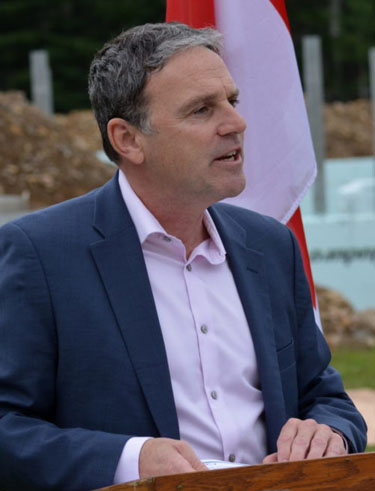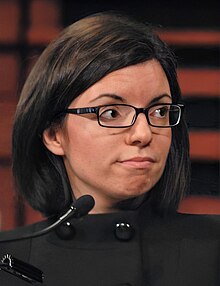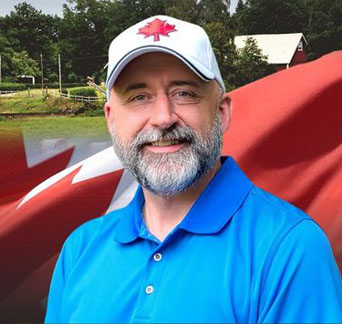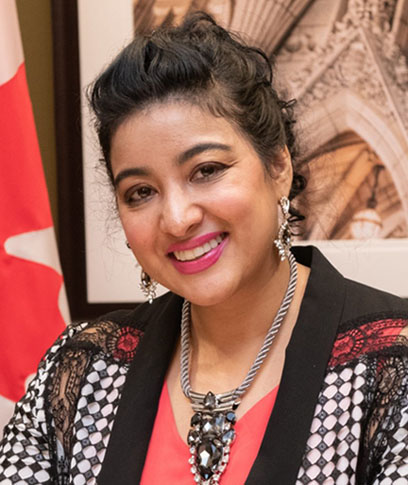MPs killing bill that would make oath to Charles III optional just marks the start of real debate on future of monarchy in Canadian House of Commons
Apr 12th, 2024 | By Counterweights Editors | Category: In BriefCOUNTERWEIGHTS EDITORS, GANATSEKWYAGON, ON, CANADA. FRIDAY, APRIL 12, 2024. For some among us (ourselves included) it is hard to believe that as we approach the second quarter of the 21st century in the modern Canadian confederation “MPs break into ‘God Save the King’” — after the defeat of a private Member’s bill, that would have made the old 1867 colonial constitutional oath to the offshore British monarch optional for federal MPs.
(A poll around the boardroom table here has just revealed that no one present has even heard the old so-called royal anthem being sung anywhere else in Canada over the past several decades, at least.)
As a further annoyance to Canadians seriously living in the 21st century, John Paul Tasker’s CBC News report presents what can only be called an aggressively monarchist slant on Vote #685 in the Canadian House of Commons on April 10, 2024. (At a time when, eg, an Abacus Data poll last May, just before Charles III’s coronation, found that “2 in 3 Canadians would vote to eliminate the monarchy in Canada.”)
Mr. Tasker summarizes the hard news here as follows : “Prime Minister Justin Trudeau’s cabinet and most Liberal and Conservative MPs on hand voted down the private member’s bill, while Bloc Québécois and NDP MPs joined some members from the two largest parties — most of them Quebec-based — to vote in favour of legislation that would have diminished Charles’s role in Parliament. The final result was 113-197.”
Almost two-thirds of Liberal and Conservative MPs who voted YES were actually from the rest of Canada
To start with, we have just completed some quick calculations. And “Bloc Québécois and NDP MPs joined some members from the two largest parties — most of them Quebec-based” is a misleading characterization of those who voted on the side of the future angels of this vast and geographically magnificent northern North American country of ours, at best.
Among the 118 Conservative MPs currently sitting in the House 17 (or somewhat more than 14%) voted YES to making the oath to the British monarch optional.
Regionally, all 9 of the 9 Conservative MPs in Quebec (or 100%) voted YES. And then one Conservative MP each from Nova Scotia and Ontario, 4 from Alberta, and 2 from BC also voted YES. In this case 53% or just over half of all Conservative MP s voting YES were from Quebec.
Among the 156 Liberals currently sitting in the House 38 (or about 24%) voted YES to making the oath to the British monarch optional.
In Atlantic Canada 8 of 24 Liberal MPs (33%) voted YES. (And the private member’s bill proposing that the oath be made optional was moved by René Arseneault from Madawaska—Restigouche in New Brunswick,)
In Quebec 10 of 34 Liberal MP s (29%) voted YES. In Ontario 14 of 75 Liberal MP s (19%) voted YES. And in Western Canada and the Northern territories 6 of 24 Liberal MP s (25%) did the same.
Among the other parties all 32 Bloc Québécois MPs, all 24 New Democrat MPs, and all 2 Green MPs voted YES. Among the current three Independents one voted YES, one voted NO, and the third did not vote. (To round everything out, there are currently three vacant seats in the House.)
In any case, it is simply not true that among the 55 “members from the two largest parties” who voted YES “most” were “Quebec-based.” In fact, only 19 of the 55 Liberal and Conservative MP s who voted YES (35%) were from Quebec. A clear majority were from the rest of Canada.
Looking forward to Canada’s Westminster parliamentary democratic republic
Vote #685 in the Canadian House of Commons on April 10, 2024 does make clear that majority opinion about the old colonial monarchy in Canada among federal MPs at large does not yet reflect what all manner of opinion polls over the past number of years have suggested is the rising opinion of the Canadian people. (Who are the real ultimate sovereign power in Canada’s “free and democratic” government and politics today.)

The vote also makes clear enough , however, that already one-third of federal MP s (113 of 338) do in some degree share the kind of popular opinion about the future suggested by such recent surveys as the May 2023 Abacus Data poll that found “2 in 3 Canadians would vote to eliminate the monarchy in Canada.”
Beyond all this Mr. Tasker’s recent aggressively monarchist CBC News report on the issue alludes (and not for the first time) to the just plain wrong arguments of John Fraser, president of Institute for the Study of the Crown in Canada, who claims “republicans are ‘foolishly’ trying to dismantle Canada’s Westminster system of government, a parliamentary structure that has served the country well for more than 150 years.”
In fact the kind of Canadian republic we and many others have been at least trying hard to urge publicly for a few decades now is very much a Westminster parliamentary democracy, with a somewhat democratized (and renamed?) office of governor general simply succeeding the British monarch of the 1867 Constitution Act as ceremonial head of state.
But that is a matter for another time and place … nearby … and soon enough …
Meanwhile btw, René Arseneault’s private member’s bill would similarly not have, as Mr. Tasker reports, “diminished Charles’s role in Parliament.”
Charles of course cannot play any practical role in Parliament because he lives across the seas. It is the Governor General of Canada who reads the Speech from the Throne, and signs the bills that Parliament passes to make them law, and so forth.
That will still be true in the 21st century Canadian republic, even if the Governor General has a new name. And all this is nothing new or unprecedented.
It has already happened in other former British dominions that have retained the Westminster model of parliamentary democracy — as Canada certainly will as well … not too much further down the road!







I agree completely
And very pleased with the NDP and Bloc vote.
Was also glad to see my local MP, a Liberal joined the Yes note.